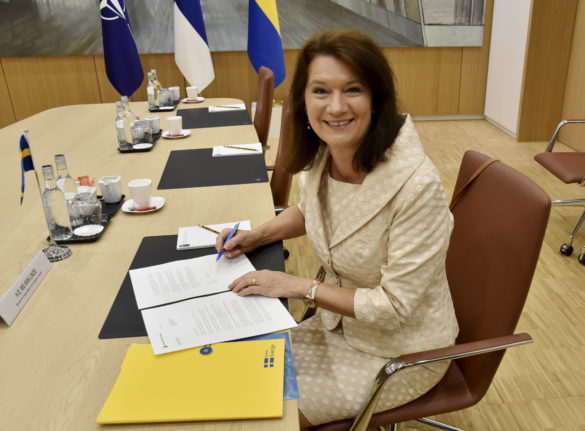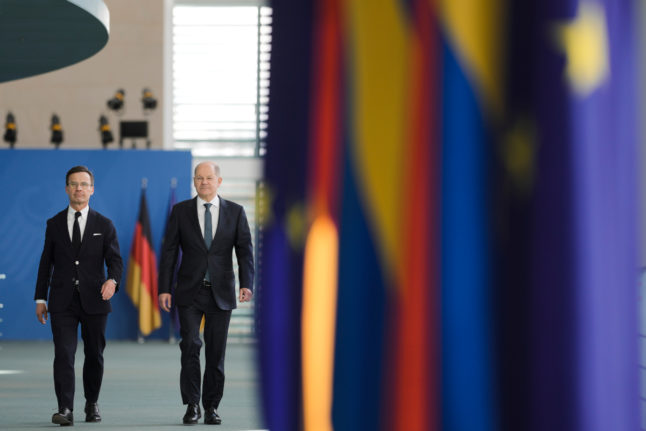Sweden’s state broadcaster SVT on Monday evening published a full copy of the letter Ann Linde, Sweden’s foreign minister, sent to Nato’s Secretary-General Jens Stoltenberg on July 5th, in which she formally confirmed her government’s “interest in receiving an invitation for Sweden to accede to the North Atlantic Treaty of 1949”.
“Sweden accepts Nato’s approach to security and defence, including the essential role of nuclear weapons,” the letter, which can be read here in full, reads, adding that it “intends to participate fully in Nato’s military structure and collective defence planning processes, and is willing to commit forces and capabilities for the full range of Nato missions.”
The clause will alarm those who were already uncomfortable with how Nato membership will clash with Sweden’s historical efforts to promote nuclear disarmament.
As recently as 2019, Sweden launched the Stockholm Initiative for Nuclear Disarmament, through which 16 non-nuclear nations sought, among other goals, to “diminish the role of nuclear weapons in security policies and doctrines”.
Sweden also committed to contributing its share — set at 1.9277% — of Nato’s budget, which is equivalent, William Alberque at the Institute for Strategic Studies, told SVT to about 700 million kronor (€65m).
“In other words, Sweden is now prepared to take part in the use of nuclear weapons,” tweeted Beatrice Fihn, Executive Director of the International Campaign for the Abolition of Nuclear Weapons, which won the Nobel Peace Prize in 2017.
”Sverige accepterar Natos inställning till säkerhet och försvar, vilket inkluderar den avgörande roll som kärnvapen spelar, (…) samt är berett att sätta in styrkor och förmågor för alla alliansens uppdrag.
Dvs Sverige är nu beredda att delta i användande av kärnvapen. https://t.co/8Dt4VRY8dC
— Beatrice Fihn (@BeaFihn) July 11, 2022



 Please whitelist us to continue reading.
Please whitelist us to continue reading.
I think Swedes need to be realistic and accept that NATO is a nuclear armed defensive alliance (with the nuclear part provided mostly by the US). In the view of its members, nuclear deterrence is the only likely effective path to take against a potential (actual now!) aggressor with heavy nuclear armaments, both strategic and tactical.
Sweden for many years has chosen to avoid involvement with nuclear deterrence and has pursued its own path alone. Now it is choosing to join forces with NATO and although it can avoid having nuclear weapons on its own territory, it must accept the reality of what NATO is and what kind of defensive posture it has. Either that or decide to remain outside, but still hopefully cooperative with NATO.
It is a sad commentary on the state of world affairs that Sweden feels it has been compelled to come to this decision. As an American with deep Swedish connections, I can say that my nation would love to get out from under the burden of being the nuclear deterrent back-up for the defense of the West! Any other nations out there willing to assume that burden? Probably not!